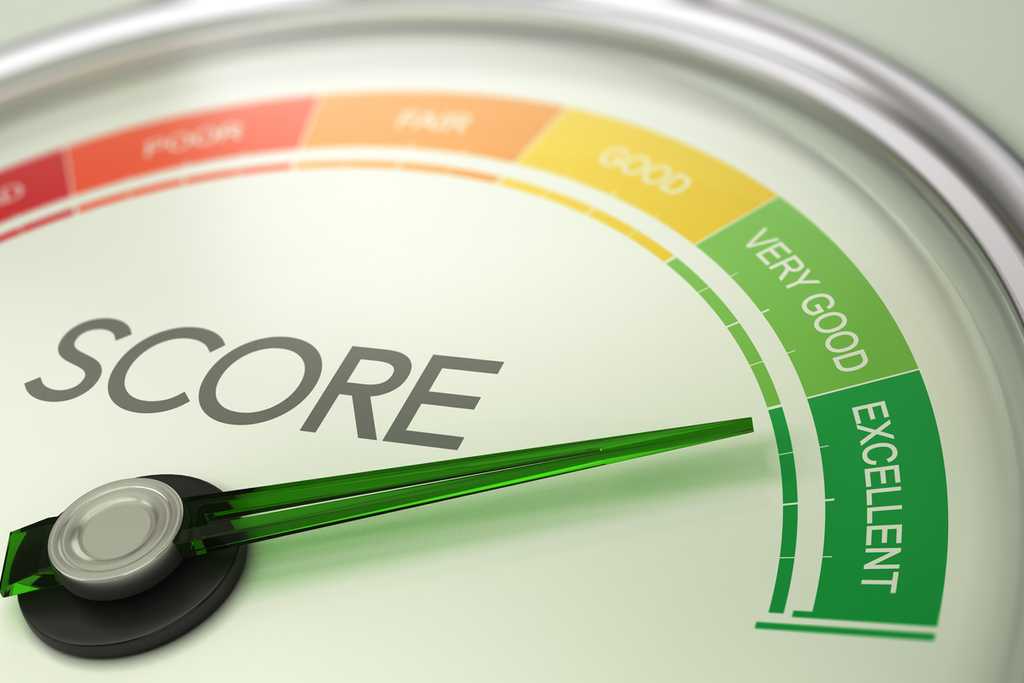Your credit score may just be the key to the life you really want, and that's especially true if you want to own a home and have more control over your finances. After all, a good credit score can help you qualify for a mortgage with the best rates and terms, as well as car loans, personal loans and credit cards that offer rewards.
With poor credit, on the other hand, you may not qualify for financial products at all — much less loans and cards with fair interest rates and fees.
Fortunately, you do have some control over your credit score, as well as the ability to fix mistakes you've made in the past. To improve your credit, you just have to be proactive and willing to jump through a few hoops.
How Do Credit Scores Work?
Before we go over the best ways to improve your credit score quickly, it's important to know how credit scores work and the range of scores that are currently out there. For the purpose of this guide, we'll talk about FICO scores since this type of score is used by 90% of top lenders.
First, you should know that FICO scores fall between 300 and 850 with higher scores showing better results. Before you take steps to improve your credit, you should find a way to get a look at your credit score to see where you stand.
Overall, your credit score will fall into one of the categories below:
- Excellent: 800+
- Very Good: 740 to 799
- Good: 670 to 739
- Fair: 580 to 669
- Poor: 579 or below
According to the Fair Isaac Corporation (FICO), the average American had a FICO score of 716 as of August 2021. Generally speaking, any FICO score of 670 or higher is considered "good," but you should still strive to get your score closer to average or nearing the "very good" range for the best results.
6 Ways to Boost Your Credit Fast
Once you're ready to do the work required to improve your credit, there are a handful of steps that can help you make progress at lightning speed. Here's everything you should consider doing right now if your goal is improving your credit score in a hurry.
Pay Your Bills On Time
If you are in the habit of paying bills late or you have paid some bills past their due date in the past, this is behavior you'll want to change right away. Since the most important factor that makes up your FICO score is your payment history (at 35%), late payments can cause more damage to your score than almost any other mistake.
To avoid late payments and the late fees that result, you can try setting up your bills for automatic payments. You can also mark your calendar or set up reminders on your phone.
Whatever you do, make sure you pay all your bills on time from this point forward. Where late payments can harm your credit score, on-time payments on all your bills will have the opposite effect.
Pay Down Debt
The second most important factor that makes up your FICO score is the debt you have in relation to your credit limits. This is also known as your credit utilization, and you should really strive to keep your utilization below 30% of your available credit for the best results.
For the most part, this means having less than $3,000 in revolving balances for every $10,000 in available credit you have. If you owe more than that on credit cards, it's likely your credit utilization rate is harming your credit score. Pay down debt as quickly as you can and you may see a big difference.
Keep Old Accounts Open
The length of your credit score makes up another 15% of your FICO score, and you can score better in this category by maintaining lines of credit for as long as you can. If you have old credit cards you're not using, for example, you can keep them open and increase the average length of your credit history nonetheless.
Whatever you do, refrain from closing old cards and accounts unless you absolutely have to.
Dispute Credit Report Errors
Another step you can take to quickly improve your credit involves checking your actual credit reports and looking for mistakes. If you find errors on your credit reports, such as incorrect balances or falsely reported late payments, the credit bureaus have a process for disputing those mistakes so you can have them fixed quickly.
Start by checking your credit reports with each of the credit bureaus — Experian, Equifax and TransUnion — using the website AnnualCreditReport.com. This website is authorized by federal law to offer each of your credit reports for free, and the process for obtaining your individual resorts is easy.
From there, look over each of your credit reports to ensure all the reported information is correct. If you find any mistakes, take the steps to dispute them with each individual credit bureau and with the business that reported the false information. You can do so using the following contact information from the Federal Trade Commission (FTC):
- Equifax Information Services LLC
- P.O. Box 740256
- Atlanta, GA 30348
- Experian
- P.O. Box 4500
- Allen, TX 75013
- TransUnion LLC Consumer Dispute Center
- P.O. Box 2000
- Chester, PA 19016
The FTC also has a sample letter you can use to tailor your message to the credit bureaus and the businesses you are disputing information with.
Become an Authorized User
Becoming an authorized user on a trusted family member or friend's credit card is another way to build credit. In this scenario, the family member would add you to an existing credit card account they have, and their ongoing, responsible credit use will help you build up your own credit profile over time.
Just keep in mind that the opposite is also true. If you're an authorized user on someone's credit and they have a high credit utilization or post a late payment, this has the potential to be listed on your credit report depending on the credit bureau.
Either way, you should only be an authorized user along with someone you trust. Meanwhile, they should also trust you since the primary cardholder is ultimately responsible for paying off all purchases charged to the card.
Consider a Secured Credit Card
If you're someone who does not have a meaningful credit history at all, you can also consider getting started with a secured credit card. This type of credit card requires a cash deposit as collateral, yet you get to "secure" your own line of credit and start building credit right away.
While secured credit cards are less than ideal since you have to put down a deposit, they are often the only option for people who need to build credit from scratch. Fortunately, secured credit cards report your credit movements to the three credit bureaus, and you can upgrade to an unsecured card and get your deposit back once your credit score has improved enough.
What does a secured credit card offer look like? Consider this example:
The Platinum Secured from Capital One requires an initial security deposit of $49, $99, or $200, and it lets the user secure a line of credit of at least $200. There's no annual fee, and cardholders can eventually upgrade and get their deposit back.
This card even gives you automatic credit line reviews in as little as six months, so you can continue making progress with more available credit over time.
If you don't have the money for a deposit on a secured card, a credit-building app like Brigit can help you improve your score all from the convenience of your phone.
How Long Does Building Credit Take?
There is no such thing as a standard timeline for building credit or repairing credit mistakes from the past. However, you may be able to begin increasing your credit score over the span of just a few months if you take proactive steps.
Here are a few other guidelines to keep in mind:
- According to American Express, it can take up to six months to generate your first credit score if you are building credit from scratch.
- According to Chase, building excellent credit can take seven to 10 years or longer.
- What happens with your credit during that time (from six months to seven years) is ultimately up to you.
Wherever you're at in your journey to great credit, the steps above remain the same. Pay your bills on time, keep revolving debt at a minimum, take steps to lengthen your credit history, and use credit responsibly. If you're willing to put in the work, you'll ensure a lifetime of good credit later on

